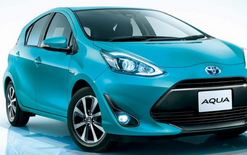Vehicle delivery times blow out

The chief executive of Autohub NZ says the delivery time for imported vehicles from Japan has gone from about seven weeks to as long as five months as a biosecurity scare causes backlogs at ports in Australia.
Frank Willett describes the delays as the worst constriction in the vehicle supply chain he has seen in 17 years in the trade, reports RNZ.
Ports across the Tasman have been experiencing problems since December. For example, Melbourne's port had 17 ships queuing for slots as of May 3 when it would usually have one or two.
This has extended the time for new and used vehicles to arrive here and, in turn, impacted dealers’ cashflow, angered consumers and created bottlenecks for certification and inspection companies.
Besides vehicles being stuck on ships, RNZ notes thousands of cars bound for New Zealand are also in a backlog in Japan.
Willett, pictured, told the media outlet the usual five-to-seven week turnaround from a dealer placing an order to getting delivery from Japan had blown out to four to five months in some cases.
“It will be fair for you to budget three months at this stage and hope for faster delivery,” he adds.
Despite the recent problems, he says there are signs of the logjam easing in Australia and the supply chain “should start to speed up”.
A Wellington used car dealer told RNZ the longer delivery times have led to deals collapsing, while Willet adds the shipping constraints are also pushing up vehicle storage costs.
“If the export agent has to load storage costs onto the price of the vehicle, that actually just drives the price of the vehicle up,” he notes.
Nick Owens, who runs Auto Inspection Services, an entry certifier of vehicles in the South Island, told RNZ the supply of imports is currently “famine or feast”.
His business usually handles 300 vehicles a month but can tackle up to 100 a week. The bottlenecks, plus trans-shipping, meant it could see up to 200 cars arriving at once “with very little notice”.
Delays at Australia’s ports have partly come about because of a new biosecurity threat created by new cars being stored for longer than usual in Asia, which exposes them to more seeds and organic detritus.
The number of new cars having to be decontaminated has increased substantially across the ditch, with the Sydney Morning Herald revealing more imports from China than anywhere else having to be decontaminated.
New Zealand's Ministry for Primary Industries says it has not been experiencing similar problems. Inspectors had not intercepted any live biosecurity matter on vehicle carriers this season.





